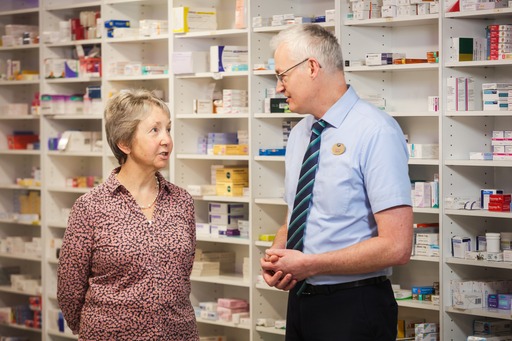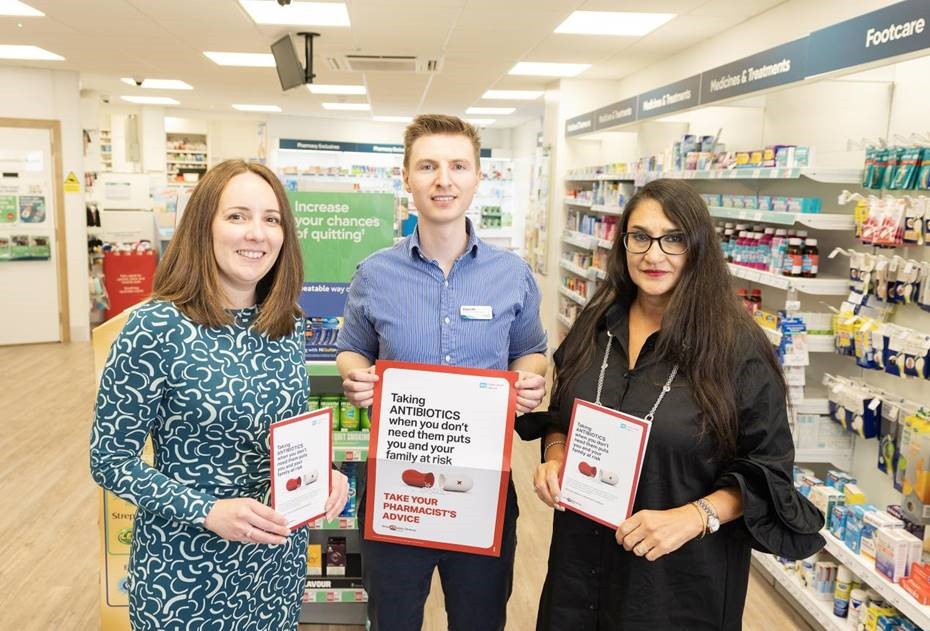As part of the Living Well service, community pharmacies are highlighting the importance of why those who drink alcohol should ‘Know Your Units’.
The ‘Know Your Units’ campaign aims to increase awareness of the UK Chief Medical Officers’ guidelines of not drinking regularly more than 14 units per week, and the health risks associated with drinking alcohol in excess of these guidelines.
The campaign will run in over 500 community pharmacies throughout February and March 2024 as part of the ‘Living Well’ service, a partnership between the Public Health Agency (PHA), Community Pharmacy NI (CPNI), and the Department of Health, providing information and advice to individuals on public health issues in pharmacies across Northern Ireland.
Members of the public are encouraged to visit their local community pharmacy for advice and to pick up a free ‘Know Your Units’ calculator and a booklet with guidance on alcohol and health.
Kevin Bailey, Regional Lead for Drugs and Alcohol at the PHA, said:
“It is easy to forget that alcohol is a powerful drug and the ‘Know Your Units’ campaign enables pharmacists at the heart of our communities to urge people who are regularly drinking above the lower risk guidelines, to think about their drinking and the impact it could be having on their health.
“The campaign aims to raise awareness of some of the free tools that can be used to check the number of units in a particular drink, what to do if you or someone you know is drinking to a harmful level and where to find help and support online and in the community.
“If you regularly drink as much as 14 units per week, it is best to spread your drinking over three or more days.
“To help demonstrate what 14 units look like, that is the equivalent of around five pints of 5% strength beer. Another example is one standard size bottle of 13% wine which is the equivalent of 9.8 units – so it’s easy to see how unsafe levels of alcohol can quickly add up.
“The campaign will also recommend that, a good way to help cut down the amount you drink is to have several alcohol-free days each week and gradually reduce the amount you drink.”
Julie-Anne Wilkinson, community pharmacist at Wilkinson’s Chemist, Garvagh, said: “If you drink alcohol, it’s important to get to know your units so you can better understand how much you are drinking and the effects it can have on you and those around you.
“Regularly drinking more than 14 units on one or two days of the week can increase your risk of serious illness, including heart attack, stroke and certain cancers.
“Many adverse effects of alcohol are common to both women and men. However, evidence suggests many of these effects are a greater risk to women’s health at lower consumption levels than men.
“Some alcohol-related harms impact overwhelmingly on women. Drinking alcohol increases the risk of breast cancer in women. Heavy drinking increases the risk of breast cancer in men.
“However, small changes can help to make a big difference in reducing the chances of developing alcohol-related problems.
“Start by visiting your local community pharmacy for a free unit calculator. It’s a handy device and will help you keep track of the number of alcohol units that are in your favourite drink and how many units you consume on a weekly basis. It can also act as a conversation starter with a friend or family member whose drinking levels you are concerned about. We can also signpost to an online alcohol test to check if your alcohol consumption is putting your health at risk.
“Over the next couple of months, why not call in and ask us any questions and pick up an information leaflet with useful links and contacts for support.”
Further information and support details on your local area visit




